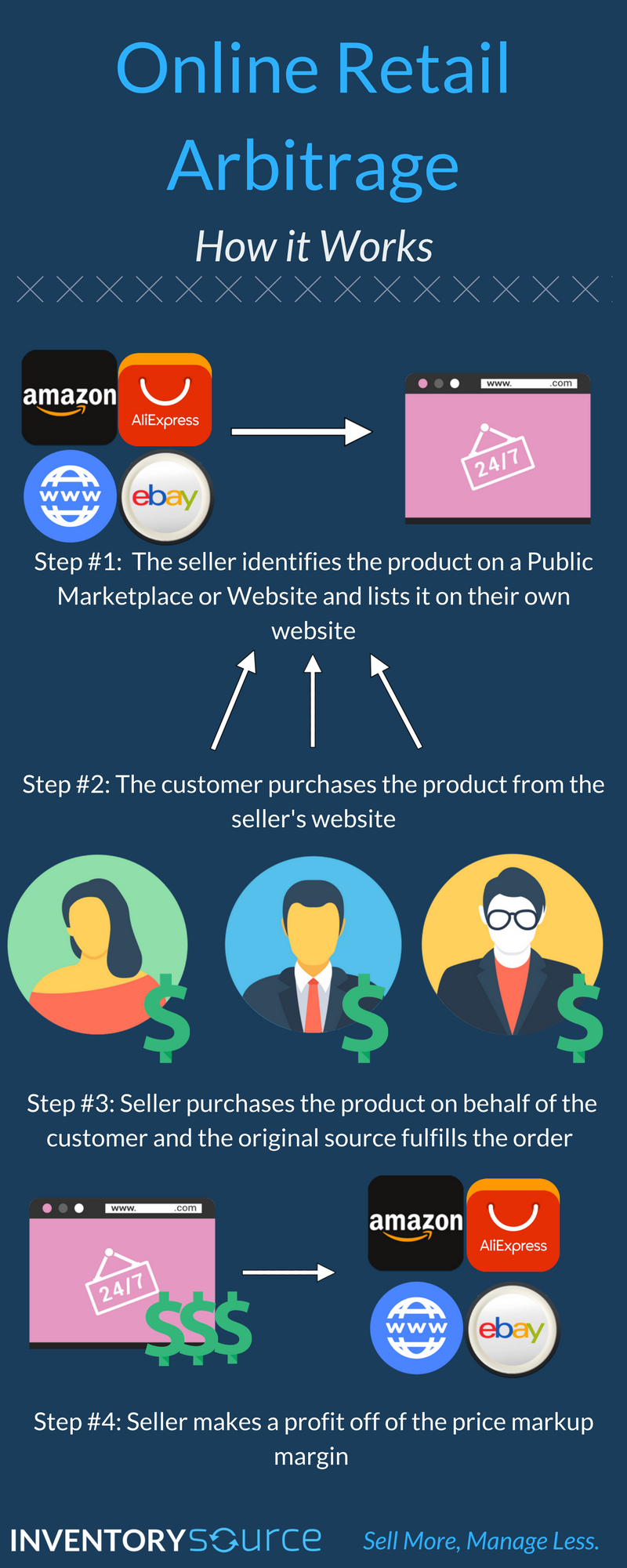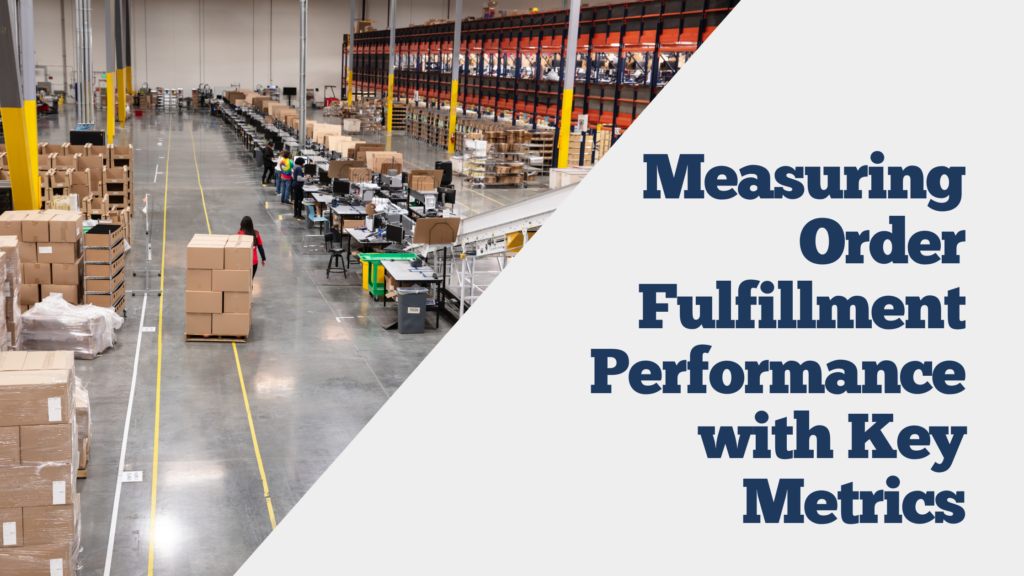Dropship Online Retail Arbitrage: Pros & Cons
Whether you are just getting started with selling online, or you’re a seasoned professional in selling in the eCommerce space, chances are that you have heard of or are familiar with the term: retail arbitrage.
What is Online Retail Arbitrage?

In the traditional sense, retail arbitrage is a method of identifying profitable products via retailers or physical brick-and-mortar shops and buying these products to sell for a higher price on another sales channel. These products are already publicly available to other consumers.
In the eCommerce space, retail arbitrage is also a very popular method of selling online. Online retail arbitrage works similarly in that the seller identifies products from an online source (for example, eBay, Amazon, or another retail website) that all users on the internet can access, and then lists that same product on their own website at a higher price-markup. Once their customer places an order, the seller purchases the product from the original site, and the original site will fulfill the order to the customer from there.
Online retail arbitrage is popular in that there is a low cost of investment to building a business around selling these types of products online – as opposed to other methods, such as selling your own in-house inventory, selling goods via Amazon FBA, or dropshipping via a wholesaler.
Let’s go ahead and jump into the Pros & Cons of this model.
Pros of Online Retail Arbitrage
Practically No Upfront Costs or Investment Needed
Dropshipping using online retail arbitrage requires almost no upfront cost or investment. Since there is no need to purchase and house physical inventory or obtain a Dealer Account directly with a supplier, you could simply list the product from the original seller to your online store, and once you make a sale, purchase the item from that store and have them fulfill the order on your behalf.
You would keep the remaining profit after the cost of the product, any shipping fees, taxes, etc.
Easily Source Cheap Products for High Margin… Potentially
If you are sourcing from publicly accessible retail websites from China, such as Aliexpress dropshipping, where the products are much cheaper, then there is a good chance that you may find a product that you could sell on your online store for a high margin.
If you could repeatedly find this opportunity and take advantage of it, then you could make a good living with online retail arbitrage.
Flexibility and Scalability
Flexibility in retail arbitrage means you can buy and sell products in different ways, like online or in stores. This flexibility lets you adapt to changing market conditions and find the best deals. Scalability means that as you make more profits, you can reinvest them to grow your business. You can expand your product range, reach more customers, or explore new selling platforms. This makes retail arbitrage a scalable business model that can grow quickly over time. With flexibility and scalability, you have the freedom to adjust your strategies and expand your business as you see fit.
Room For Private Labeling
Room for Private Labeling in retail arbitrage refers to the opportunity to create your own brand and label products obtained through arbitrage. By sourcing products from various retailers, you can rebrand them under your own label, adding value and differentiation. This allows you to establish a unique identity in the market and build customer loyalty. Private labeling also offers higher profit margins compared to selling existing brands, as you have more control over pricing and branding.
Wide Range of Products
One advantage of retail arbitrage is the wide range of products available for resale. Retail arbitrage allows individuals to source products from various retailers, both online and offline, providing access to a diverse selection of items. This wide range of products enables arbitrageurs to capitalize on trends, fluctuations in demand, and niche markets. Additionally, it offers flexibility in choosing products with high-profit margins or those in high demand. With a broad selection to choose from, individuals engaged in retail arbitrage have the opportunity to explore different product categories and maximize their potential for profitability.
Cons of Retail Arbitrage
You’re At the Mercy of the Market
With online retail arbitrage, your sales are dependent on the market and customer buying trends. You have to constantly be on the lookout for new bargain deals, scraping marketplaces such as eBay, Amazon, Aliexpress, and other reseller websites, and then always make sure that these products will bring value to your customer base.
In this sense, this method of selling online isn’t as sustainable as a store that’s built around a brand and a specific niche of products. You will be always changing your product line to the next hottest and high-margin product based on what’s happening in the market, and that could take away a lot of time from marketing your business and making actual sales.
The Model is Unsustainable in the long-term
With retail arbitrage, you are taking a product from other online store listings and listing it on your website at a higher price markup. With no wholesale supplier involved, there is no access to your own unique discount pricing, or any chance to be offered any dealer discounts or specials when it comes to repeated purchases.
You simply have access to the same price from the original seller as any other user that has access to the internet… and there is little value you are providing to the end consumer in this business model.
As more and more users get on board with buying and selling in the eCommerce space, you’ll want to look to form a long-term relationship with a wholesale dropship supplier, so that you can take advantage of these deals as your average sales volume grows. Becoming a Dealer with a supplier also provides you more exclusive access to their large catalog of products, as opposed to selling publicly available products.
Providing highly demanded product brands at a margin other sellers don’t have is typically the competitive advantage retailers build their business around and, in this model, it is almost impossible to gain this advantage.
No Ownership of Products
Sellers do not own the products they’re selling; they’re simply buying and reselling. This lack of ownership can be a drawback because sellers have limited control over product quality, availability, and shipping times. Additionally, returns and customer service can become challenging when dealing with products owned by another retailer. Lack of ownership also means sellers bear the risk of products becoming unavailable or prices fluctuating unexpectedly, affecting profit margins.
Not owning the products being sold can lead to uncertainties and complexities in managing a retail arbitrage online business.
Brand Gated Products Have No Scope
In retail arbitrage, some brands restrict unauthorized sellers from selling their products. This limitation can hinder arbitrageurs’ ability to access certain high-demand brands, reducing potential profits. Brands implement these restrictions to protect their image, control pricing, and ensure product authenticity. As a result, arbitrageurs may face challenges sourcing popular branded items, limiting their product selection.
Overcoming this hurdle often requires establishing partnerships with authorized distributors or focusing on non-gated brands to maintain profitability in the arbitrage online business.
Protection of Brand Registry
Brand Registry Protection refers to a program offered by online marketplaces like Amazon, allowing brands to register their products to prevent unauthorized sellers from listing them. In Retail Arbitrage, sellers may face challenges with Brand Registry Protection because they’re reselling products without explicit permission from the brand owner. This can lead to listing restrictions, account suspensions, or legal issues if brands enforce their intellectual property rights.
Therefore, Retail Arbitrage sellers must navigate these risks and ensure compliance with marketplace policies to avoid potential consequences related to Brand Registry Protection.
Conclusion: Arbitrage Versus True Dropshipping
Dropshipping with online retail arbitrage is advantageous in that there is almost no financial investment needed and it is super easy and quick to get started. The primary difference between this method and dropshipping with a true dropship supplier is that a retail arbitrage business adds little value to the end consumer in price and product selection and, because of this, it’s just not as sustainable of a business in the long-term.
Feel free to refer to our other articles that delve specifically into dropshipping through Aliexpress and dropshipping with a wholesale dropship supplier to weigh your options on the best method of getting started.



